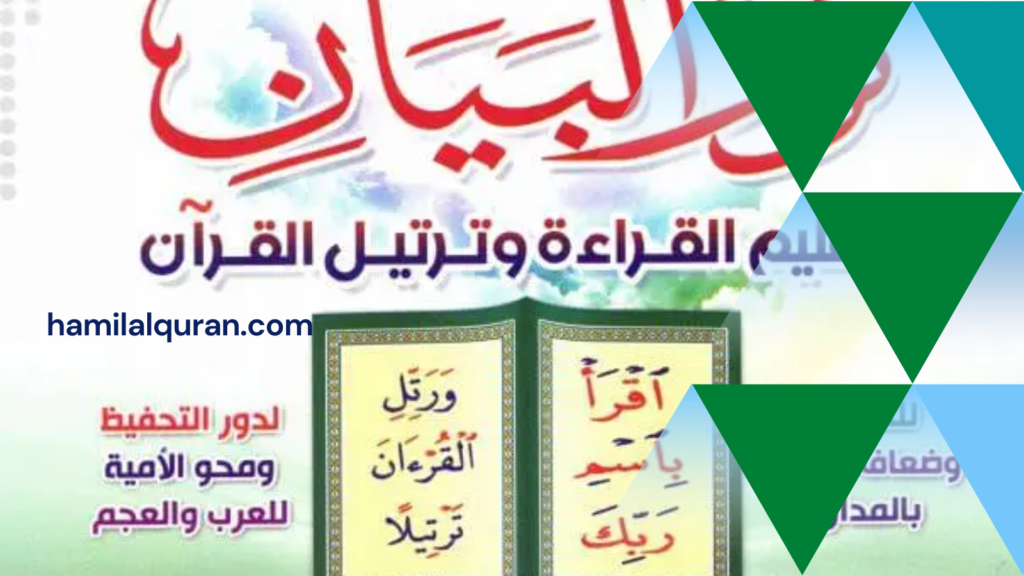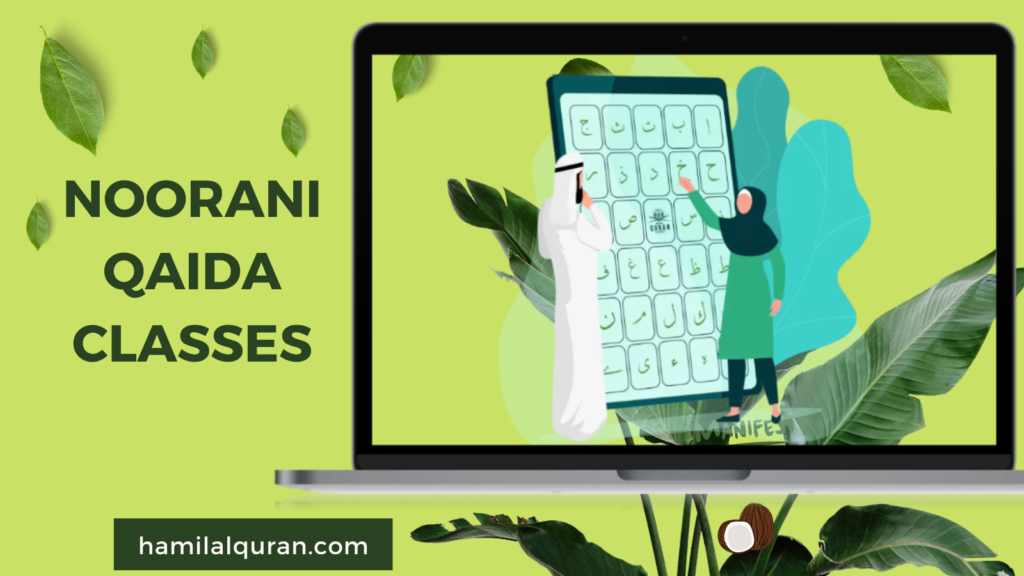
Learn Proper Quranic Recitation with Noorani Qaida
Learning to recite the Holy Quran with proper makhraj and tajweed is an important first step towards developing a deeper connection with the divine book. Noorani Qaida, a primer used by millions across the world, provides an accessible starting point to master Quranic recitation. This article covers everything you need to know to get started with Noorani Qaida.
What is Noorani Qaida and Why Learn It?
Noorani Qaida is a beginner’s guide to learning the correct pronunciation and recitation of the Holy Quran. It was formulated by Qari Noor Muhammad Noorani and focuses on mastering the basics of reciting the Quran like the Arabic alphabet, makhraj points, and key tajweed rules.
Learning Noorani Qaida allows you to:
- Recite the Quran accurately with proper Makhraj and tajweed
- Understand the science and etiquettes of Quranic recitation
- Gain a deeper appreciation for the divine book
- Strengthen your relationship with the Quran
Noorani Qaida serves as the foundation that paves the path toward proper and melodious Quranic recitation.

Getting Started with Noorani Qaida
To effectively learn Noorani Qaida, you need the right resources and a structured routine. Here are some tips to help you get started:
Selecting the Right Noorani Qaida Book
The Noorani family of books like Noorani Qaida, Qaida Noorania, and Noor-ul-Qaida are the most popular choices. Consult with a teacher and look for books with clear prints, illustrations, transliterations, and audio CDs to supplement your self-learning. Online Quranic recitation courses like Quran Recitation Course also effectively teach Noorani Qaida digitally.
Finding a Qualified Noorani Qaida Teacher
Learning under an experienced Quran teacher well-versed in Noorani Qaida speeds up the learning process tremendously. They can correct mistakes, provide feedback, and customize lessons at your own pace. Look for certified Quran teachers in your locality or choose online platforms like Noorani Qaida Online Course for structured learning.
Basic Quranic Vocabulary and Phrases
Learning even just a few basic Quranic vocabulary and phrases can bring a sense of awe and reverence for the holy text. As you begin your journey towards mastering the art of reciting the Quran fluently, it’s essential to start by familiarizing yourself with some common Quranic phrases and basic Arabic expressions.
Here are some of the most important words that every beginner should know:
- Bismillah: This phrase means ‘In the name of Allah.’ It’s usually said at the beginning of any action or undertaking.
- Alhamdulillah: This expression means ‘Praise be to Allah.’ Muslims say this when expressing gratitude or appreciation for something.
- Insha’Allah: This phrase translates to ‘If Allah wills it.’ It’s used when referring to future events or plans.
- Allahu Akbar: This phrase means ‘Allah is Great’ or ‘God is Greater. Muslims use it in various situations such as during prayer, when feeling overwhelmed by His blessings, or when expressing their faith.
Apart from these common Quranic phrases, there are many other essential Quran words that you need to learn. To help you get started, refer to an Arabic Vocabulary List specifically designed for beginners. You can also use a Quranic Terminology Guide which explains key terms used in the holy book.
As you continue learning Basic Arabic Expressions and Essential Quranic Words, remember that patience and persistence are crucial in achieving fluency in reading the Holy Qur’an. Take time each day to practice recitation and memorization while keeping in mind the meanings behind each word and phrase. With consistent effort, dedication, and guidance from knowledgeable teachers, you’ll soon find yourself on your path to becoming proficient in reciting this beautiful scripture with ease.
Setting Realistic Goals
Set small, achievable targets to maintain consistent progress. Focus on learning the fundamentals like the makhraj and tajweed rules properly before rushing through the lessons. Aim to master one lesson at a time.
Creating a Dedicated Study Routine
Fixed short sessions of 15-30 minutes every day are more effective than long occasional ones. Allot time for Noorani Qaida practice and recap sessions. Maintaining a dedicated routine is key.
Core Concepts in Noorani Qaida
Noorani Qaida covers the integral basics of Quranic recitation:
Arabic Alphabet and Pronunciation
It teaches the precise pronunciation and recitation of the 28 Arabic alphabets from their correct makhraj points.
Makhraj – Places of Articulation
Makhraj refers to the point from where each Arabic letter originates. Noorani Qaida covers the three primary makhraj:
- Halqiyah – Throat letters like Ha (ح) and Ain (ع)
- Lisaveyah – Tongue letters like Lam (ل) and Sheen (ش)
- Shafaveyah – Lip letters like Fa (ف)
Tajweed Rules
Some key tajweed rules taught are Idgham, Ikhfa Saakinah, Izhar, observing timings of letter recital,s and more. Tajweed allows perfecting recitation.

Setting Realistic Goals
Set small, achievable targets to maintain consistent progress. Focus on learning the fundamentals like the makhraj and tajweed rules properly before rushing through the lessons. Aim to master one lesson at a time.
Creating a Dedicated Study Routine
Fixed short sessions of 15-30 minutes every day are more effective than long occasional ones. Allot time for Noorani Qaida practice and recap sessions. Maintaining a dedicated routine is key.
Core Concepts in Noorani Qaida
Noorani Qaida covers the integral basics of Quranic recitation:
Arabic Alphabet and Pronunciation
It teaches the precise pronunciation and recitation of the 28 Arabic alphabets from their correct makhraj points.
Makhraj – Places of Articulation
Makhraj refers to the point from where each Arabic letter originates. Noorani Qaida covers the three primary makhraj:
- Halqiyah – Throat letters like Ha (ح) and Ain (ع)
- Lisaveyah – Tongue letters like Lam (ل) and Sheen (ش)
- Shafaveyah – Lip letters like Fa (ف)
Tajweed Rules
Some key tajweed rules taught are Idgham, Ikhfa Saakinah, Izhar, observing timings of letter recital and more. Tajweed allows perfecting recitation.
Tips for Effective Learning
Here are some tips to learn Noorani Qaida quickly and effectively:
Be Patient and Consistent
Learning Quranic recitation requires time and dedication. Regular practice is essential for progress.
Focus on Basics First
Master the makhraj, pronunciation, and tajweed rules completely before moving forward.
Practicing Regularly
Daily practice sessions to review lessons learned help commit them to memory.
Get Feedback from the Teacher
A teacher identifies mistakes, provides valuable feedback, and helps improve recitation.
Resources to Learn Noorani Qaida
Some useful resources for learning Noorani Qaida are:
Noorani Qaida Books
Self-learn Noorani Qaida through books like Noor-ul-Qaida, Qaida Noorania, Noorani Qaida etc.
Online Courses
Structured online Quranic recitation courses are effective for learning Noorani Qaida.
Mobile Apps
Practice Noorani Qaida through handy apps available on Playstore and App Store.
Noorani Qaida lays the foundation for proper Quranic recitation. Follow the guidance in this article to start your journey towards melodious Quran recitation today!
Conclusion
Learning to recite the Holy Quran correctly is crucial for establishing a meaningful connection with it. Noorani Qaida provides the perfect stepping stone towards developing proficiency in proper makhraj and tajweed-based Quranic recitation.
Follow the guidance outlined in this article to start your Noorani Qaida learning journey. Be patient and consistent in your practice. Master the fundamentals before moving forward. Recruit the help of qualified teachers and utilize the resources suggested to progress swiftly.
The joy of melodiously reciting the divine words of the Quran is immense. Embark on your spiritual journey today by checking out Quranic courses designed to help you learn at your own pace. Invest time in learning Noorani Qaida – your first step towards becoming an expert Quran reciter, in sha Allah.



